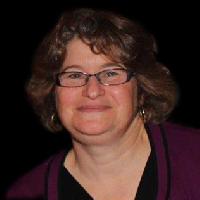| Pages in topic: < [1 2] | ATA membership / accreditation - could anyone share their experience? Thread poster: Laura Vinti
|
|---|
Simona Zanfir (X)
English to Romanian
+ ...
| European vs American system | Feb 15, 2005 |
In Romania there are as well people that speak the language(s) and act as translators. However, they can be certified only after passing an exam and even then the certification allows them to translate only in the field(s) they passed the exam for. For example, an exam in legal translation does not allow you to do technical translation, or better said you could but you do not have credentials for that. At the same time, a University degree in Letters or Modern Languages, Translations, etc. offer... See more In Romania there are as well people that speak the language(s) and act as translators. However, they can be certified only after passing an exam and even then the certification allows them to translate only in the field(s) they passed the exam for. For example, an exam in legal translation does not allow you to do technical translation, or better said you could but you do not have credentials for that. At the same time, a University degree in Letters or Modern Languages, Translations, etc. offers you the opportunity to request a certification from the Ministry of Justice for all fields, without an exam, as the examinations as an undergraduate student and later as a graduate student are considered the equivalent of the certification examination.
Given this, I was a bit surprised when told that there are no specific requirements to be a translator in the States (except for legal/court translation) - no offence. It is just a difference of legal, cultural and working background.
[quote]trixiemck wrote:
From this I infer that you do not need to be a professional translator to be ATA-certified. By professional translator I mean someone with a University degree in translation. This is a never-ending controversy, I know. About half the people who work as translators have no degree. It is a very unfair profession indeed. I know when to give my children some medicines but that doesn't make me a doctor. My 12-year-old can clip her toenails (and so can most of us, I'm sure) but she won't go about claiming to be a podologist. Neither would any of you... or would you?
So in my opinion being ATA-accredited does not really mean much. In Argentina to be accredited by the Argentine Association of Translators you have to have your University degree. And to get one you must have studied the target language for many years before even considering going to University. ▲ Collapse
| | | | | Stop flogging this old horse... | Feb 18, 2005 |
By professional translator I mean someone with a University degree in translation.
Someone with a university degree in translation is a person with a university degree in translation. His/her qualification does not make him/her a "professional translator".
People with degrees in translation may (or may not, I doubt any serious work has been done on the question) be "better" translators, on average, than people without, but I'm sure most ProZ members know a) people without degress in translation who are excellent, and b) people with degrees in translation who are incompetent.
Regards
David
| | | | | degree vs. experience | Feb 23, 2005 |
trixiemck,
You seem to have a rather narrow view of the profession. While requiring a degree makes sense in some countries, it does not in others.
Here in the U.S., translation degrees are a relatively new phenomenon.
I do not have one, but have been in the business for 24 years, make a very nice living, pursue (and provide) all kinds of professional development activities and teach financial translation at two universities.
I specialize in fin... See more trixiemck,
You seem to have a rather narrow view of the profession. While requiring a degree makes sense in some countries, it does not in others.
Here in the U.S., translation degrees are a relatively new phenomenon.
I do not have one, but have been in the business for 24 years, make a very nice living, pursue (and provide) all kinds of professional development activities and teach financial translation at two universities.
I specialize in financial/legal translation and only work into my native language.
Based on the above, I command premium rates and refuse any clients who won't pay them.
So yes, I do consider myself a professional.
I also happen to be ATA certified; certification is among the few credentials available to translators in the U.S.
As I'm sure you know, very few foreign credentials are open to U.S. residents/citizens. Certainly the Argentine credential "traductor público" is not. And I find it hard to accept that being a "traductor público" qualifies anyone to translate into U.S. English. I have seen too many cases where that is simply not true.
Furthermore, "traductor público" is fine for legal translation, but what does it have to do with any other type of translation?
Your inference about Certification is slightly illogical - you quote a passage about ATA Membership, not Certification.
It is true that in theory it is possible to pass the Certification test without being a professional, but it would be hard to pass without any translation experience. As a matter of fact, if you read further, there are prerequisites for taking the exam, either years of experience or a degree.
The above is simply to get you (and others) thinking about the fact that the beauty of translation is that it is a very diverse world and when you look at the business, you need to look at it from a global perspective and not apply only local criteria.
Regards,
msg
trixiemck wrote: This is copied and pasted from ATA's site: "Thank you for your interest in the American Translators Association. ATA Membership is open to anyone with an interest in translation and interpreting as a profession or as a scholarly pursuit." From this I infer that you do not need to be a professional translator to be ATA-certified. By professional translator I mean someone with a University degree in translation. This is a never-ending controversy, I know. About half the people who work as translators have no degree. It is a very unfair profession indeed. I know when to give my children some medicines but that doesn't make me a doctor. My 12-year-old can clip her toenails (and so can most of us, I'm sure) but she won't go about claiming to be a podologist. Neither would any of you... or would you? So in my opinion being ATA-accredited does not really mean much. In Argentina to be accredited by the Argentine Association of Translators you have to have your University degree. And to get one you must have studied the target language for many years before even considering going to University. Sorry about the harshness. I am in a particularly terrible mood today. 0ver a month ago I moved almost 300 miles south of the place where I lived all of my life and have not got a phone or an Internet connection yet. I missed quite a few jobs because I was not there at the right time (i.e. the computer@www) and today I was contacted by a company that turned down my outrageous rate of .08 for the translation of a contract because they found somebody that could do it for just .02 "You know, she does not have a degree as you do and not your almost 30 years' experience, but then she knows both English and Spanish and she only charges two cents per word." Have a nice weekend.:( ▲ Collapse
| | | |
Marian Greenfield wrote:
I also highly recommend taking the practice test under simulated testing conditions and with enough time to return and receive it back graded before you sit for the actual exam. It will give you a good idea of what the graders are looking for and thus give you a better chance of passing.
Hi Marian,
I have been reading this interesting thread very carefully as the same happens to me. I want to ask you if to take the practice test you describe above, it is necessary to be a member first.
Thank you!
Inés
| | |
|
|
|
| Practice test | Mar 6, 2005 |
Hi Ines,
Frankly, I'm not sure if you have to be a member in order to take the practice, but I think you do. You certainly do need to be a member for several weeks before you take the actual exam.
If you write to Maggie Rowe at [email protected], she can tell you for sure about the practice test.
Regards,
msg
[/quote]
Hi Marian,
I have been reading this interesting ... See more Hi Ines,
Frankly, I'm not sure if you have to be a member in order to take the practice, but I think you do. You certainly do need to be a member for several weeks before you take the actual exam.
If you write to Maggie Rowe at [email protected], she can tell you for sure about the practice test.
Regards,
msg
[/quote]
Hi Marian,
I have been reading this interesting thread very carefully as the same happens to me. I want to ask you if to take the practice test you describe above, it is necessary to be a member first.
Thank you!
Inés[/quote] ▲ Collapse
| | | | | Pages in topic: < [1 2] | To report site rules violations or get help, contact a site moderator: You can also contact site staff by submitting a support request » ATA membership / accreditation - could anyone share their experience? | Trados Studio 2022 Freelance | The leading translation software used by over 270,000 translators.
Designed with your feedback in mind, Trados Studio 2022 delivers an unrivalled, powerful desktop
and cloud solution, empowering you to work in the most efficient and cost-effective way.
More info » |
| | TM-Town | Manage your TMs and Terms ... and boost your translation business
Are you ready for something fresh in the industry? TM-Town is a unique new site for you -- the freelance translator -- to store, manage and share translation memories (TMs) and glossaries...and potentially meet new clients on the basis of your prior work.
More info » |
|
| | | | X Sign in to your ProZ.com account... | | | | | |






